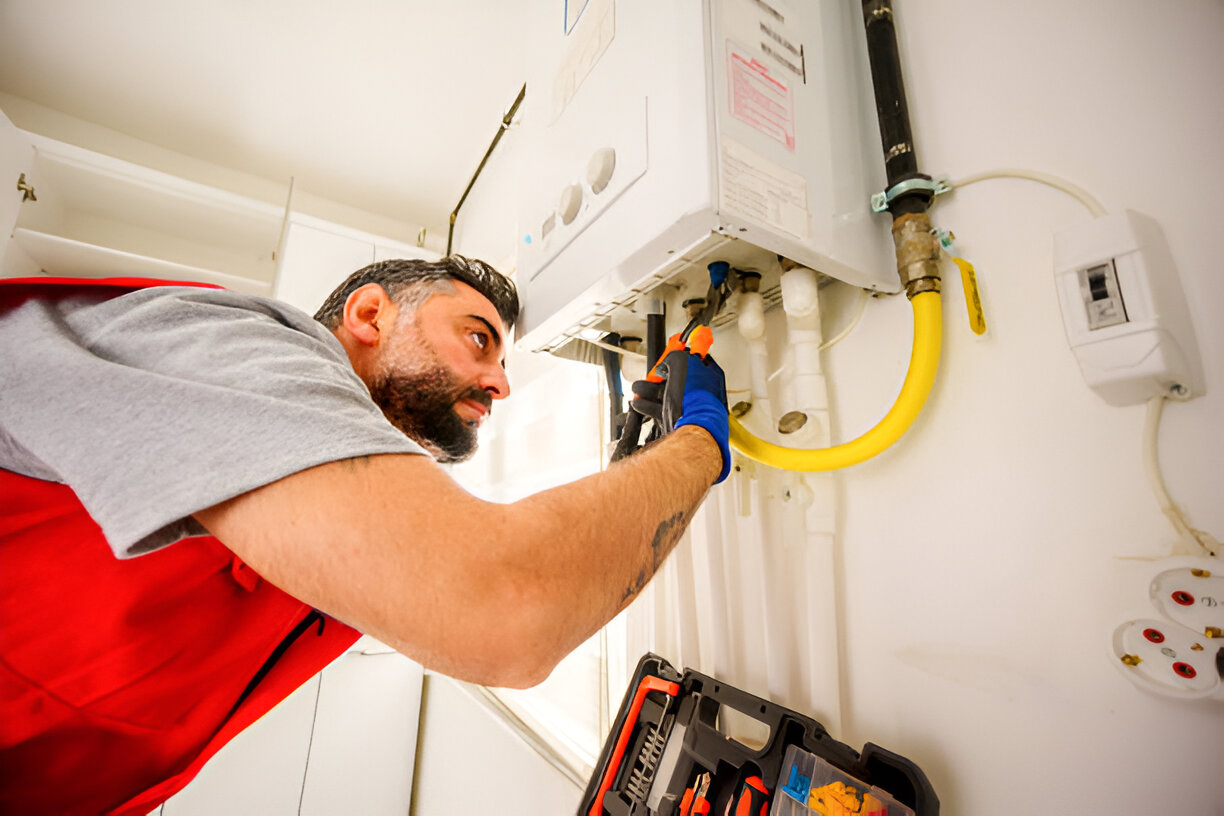Few things feel more inconvenient than turning on the shower only to be greeted with icy water. A sudden lack of hot water disrupts daily routines and leaves families searching for immediate answers. In most cases, it’s not random, it’s often caused by hidden issues that build up over time.
Understanding the root causes is key to staying prepared. By learning essential water heater troubleshooting techniques, you’ll know what to check, when to act, and how to prevent total breakdowns. With the right knowledge, you can address problems early and decide if professional help is necessary.
Common Signs of Water Heater Failure
Before a system completely stops, it often shows warning signs. Recognizing them early prevents unexpected surprises and allows you to schedule hot water heater repair before total failure.
- Water turning lukewarm instead of hot.
- Rust-colored water flowing from taps.
- Strange popping or banging noises in the tank.
- Damp spots around the unit’s base.
Sediment Buildup Inside the Tank
One of the most common water heater problems is sediment accumulation. Minerals from hard water settle at the bottom, creating a barrier that blocks efficient heating and shortens the system’s lifespan.
- Reduces the amount of hot water available.
- Forces the system to work harder, raising energy costs.
- Causes loud noises as steam pushes through mineral layers.
- Eventually cracks or damages the tank.
Faulty Heating Element or Burner
When a water heater suddenly stops producing hot water, a worn-out heating element or burner is often to blame. These parts are essential, and when they fail, the entire system struggles.
- Electric units may need replacement heating elements.
- Gas units often face pilot light or burner malfunctions.
- Symptoms include water that stays cold or never heats fully.
- Quick testing can confirm if replacement parts are required.
Broken Thermostat or Gas Control Valve
A thermostat regulates water temperature, and once it fails, heating becomes inconsistent. In gas models, a defective control valve creates similar issues, leaving families wondering why water heater stops working at critical times.
- Cold showers despite the system running.
- Water overheated unexpectedly.
- Fluctuating water temperature throughout the day.
- Frequent cycling of the system without results.
Leaks and Water Pressure Concerns
Small leaks may look harmless, but they signal deeper issues. Combined with incorrect water pressure, leaks can lead to costly damage and require immediate broken water heater solutions.
- Cracks are forming near the base of the tank.
- A faulty pressure relief valve dripping constantly.
- Dampness or puddles forming around the heater.
- Corrosion is eating away at connecting pipes.
Old Age and Wear Over Time
Most heaters last between 8–12 years, depending on maintenance. Beyond that, efficiency drops, and replacement is often more practical than continued hot water heater repair attempts.
- Older systems consume more energy.
- Frequent breakdowns raise long-term costs.
- Outdated parts may be difficult to replace.
- Replacement ensures consistent heating and modern efficiency.
Preventive Maintenance to Avoid Breakdowns
Simple maintenance extends a water heater’s life and reduces the need for emergency water heater service. Routine checks give peace of mind and help avoid costly surprises.
- Flush the tank once or twice a year.
- Inspect and replace anode rods as needed.
- Check pressure relief valves regularly.
- Schedule professional inspections annually.
What to Do When You Need Emergency Help
Even with good care, sudden breakdowns still happen. Knowing when to call for emergency water heater service ensures you don’t go long without hot water.
- No hot water despite checking thermostat settings.
- Leaks growing quickly or flooding the floor.
- Strange smells such as gas or burning wires.
- Complete failure of the system to operate.
Frequently Asked Questions
1. Why does my water heater make rumbling noises?
Sediment buildup causes steam bubbles to pop, creating loud noises inside the tank.
2. How long should a water heater last?
Most units last 8–12 years, depending on water quality and maintenance.
3. Can I repair a heater myself?
Minor checks are fine, but most hot water heater repair tasks should be handled by professionals for safety.
4. Why is my water discolored?
Rust or corrosion inside the tank often causes brown or orange water.
5. How often should I flush my tank?
Flushing once or twice a year prevents sediment buildup and improves efficiency.
6. When should I call for emergency water heater service?
If you notice leaks, unusual smells, or a complete lack of hot water, call immediately.
Conclusion: Staying Ahead of Water Heater Problems
Water heaters rarely fail overnight; they usually give off warnings first. From strange noises to inconsistent heating, these signs help identify common water heater problems before they turn serious. Staying alert and acting early saves time and money.
Knowing the right broken water heater solutions gives you control in stressful situations. By combining preventive maintenance with smart water heater troubleshooting, you can extend your system’s life and avoid cold showers at the worst times.
Get Reliable Hot Water Heater Repair Today
Don’t wait until your system completely stops working. Rely on professional hot water heater repair experts who can quickly diagnose issues, offer emergency water heater service, and keep your home comfortable year-round.






